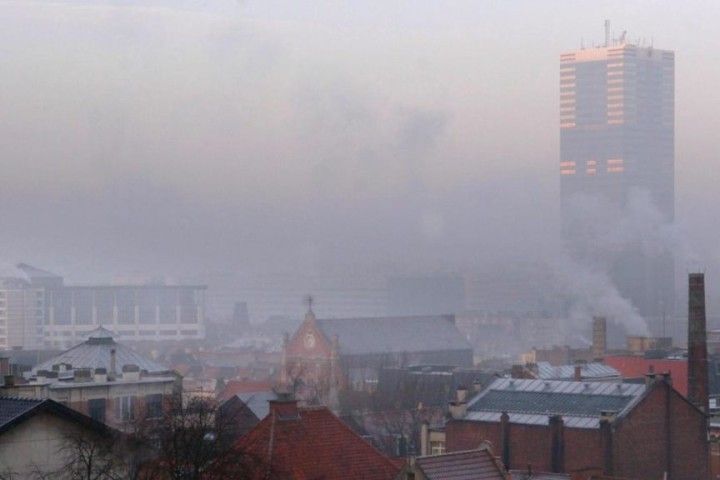Pollution Responsible for 9 Million Deaths Each Year

Deaths caused by modern types of pollution -- including toxic chemical and ambient air pollution -- increased by 66% over the past two decades, according to data from the Global Burden of Diseases, Injuries, and Risk Factors Study.
Nine million people die from pollution each year worldwide, a number that has not changed since 2015, driven by industrialization, uncontrolled urbanization, population growth, fossil fuel combustion, and a lack of adequate national and international policies, reported Richard Fuller, BEng, of the Global Alliance on Health and Pollution in Geneva, Switzerland, and colleagues in Lancet Planetary Health.
Ambient air pollution led to 4.5 million deaths in 2019, up from 2.9 million in 2000. Deaths attributed to hazardous chemical pollutants also increased since 2000, from 0.9 million to 1.8 million in 2019. Lead pollution accounted for a large proportion of those deaths, followed by toxic occupational hazards.
Fuller and team noted that countries should focus on both of these areas -- air and chemical pollution -- to combat the public health crisis.
"Pollution has typically been viewed as a local issue to be addressed through subnational and national regulation or, occasionally, using regional policy in higher-income countries," they wrote. "Now, however, it is increasingly clear that pollution is a planetary threat, and that its drivers, its dispersion, and its effects on health transcend local boundaries and demand a global response. Global action on all major modern pollutants is needed."
While deaths attributed to pollution related to extreme poverty, such as household air and water pollution, have decreased, over 90% of deaths related to pollution occur in low- and middle-income countries, they noted.
While the largest decrease in deaths related to traditional sources of pollution was in Africa, due to advances in sanitation, water supply, and other factors, Southeast Asia was home to the largest increase in modern types of pollution, which occurred alongside the region's aging population.
"The health impacts of pollution remain enormous, and low- and middle-income countries bear the brunt of this burden," said Fuller in a press release. "Despite its enormous health, social, and economic impacts, pollution prevention is largely overlooked in the international development agenda."
Fuller and colleagues estimated that economic losses totaled $4.6 trillion in 2015. They emphasized that the situation "has not improved" and that pollution "remains a major global threat to health and prosperity."
"Most countries have done little to deal with this enormous public health problem," they wrote. "Although high-income countries have controlled their worst forms of pollution and linked pollution control to climate change mitigation, only a few low-income and middle-income countries have been able to make pollution a priority, devoted resources to pollution control, or made progress."
"Likewise, pollution control receives little attention in either official development assistance or global philanthropy," they added.
Fuller and colleagues stressed that reducing pollution can also slow climate change, calling for a "large-scale, rapid transition away from all fossil fuels to clean, renewable energy."
Other recommendations in the report include establishing an independent United Nations panel on pollution, increasing funding for pollution control from governments and philanthropic donors, and improving monitoring and data collection, Fuller said.

.JPG)